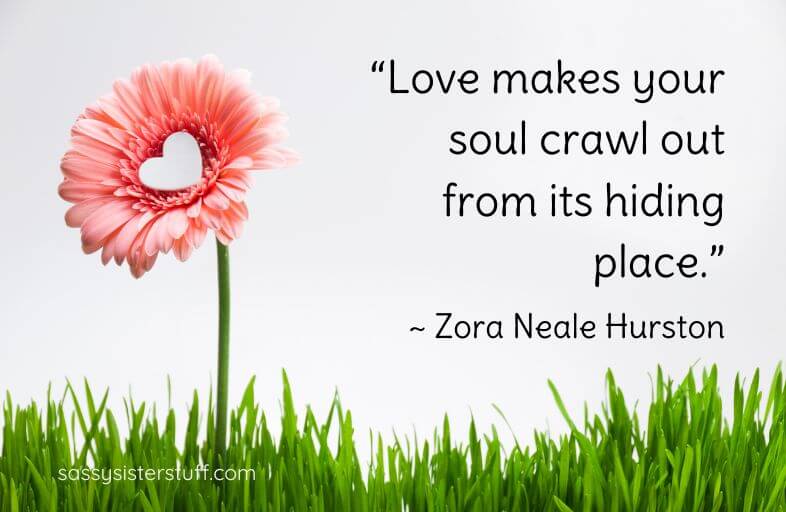Why is Love Important to Your Well-Being in Life
Love is one of the most powerful emotions we experience as humans. It has the unique ability to inspire joy, provide comfort, and create meaningful connections that shape our lives.
But did you know that love also plays a vital role in your overall well-being? Whether it’s the warmth of romantic love, the unconditional support of family, or the deep bonds of friendship, love nurtures your mental, emotional, and even physical health.

In this article, we’ll explore why love is so essential to your well-being and how it influences every part of your life. From boosting your happiness and reducing stress to promoting longevity and resilience, the benefits of love go far beyond the heart. Let’s dive into the many ways love can enrich your life and help you thrive.
Definition of Love
Love is a complex and multifaceted emotion that can be challenging to define because it takes so many forms. At its core, love is a deep feeling of care, connection, and affection for someone or something. It can be a romantic type of love, like the bond shared between partners; family love, like the love between parents and children; or platonic, like the closeness you feel with friends.
Beyond emotions, love is also an action. It’s shown through kindness, support, and the effort to nurture relationships.
Love is about valuing others, creating meaningful connections, and fostering a sense of belonging. While it may look different for everyone, love is ultimately what brings us together and adds richness to our lives.

Why Is Love Important in Life?
As one of the most powerful forces in life, love ties us together by giving meaning to our lives and connecting us to others in profound ways. At its core, love helps us flourish emotionally, mentally, and even physically. Let’s take a closer look at why this feeling is crucial for a well-rounded and balanced life.
Love Fuels Emotional Well-being
Imagine a life without emotional connections. Without love, we miss out on the joy, comfort, and reassurance that close relationships bring.
Love, whether shared with family, friends, or romantic partners, nurtures our emotional health. It encourages happiness and helps lower feelings of loneliness or isolation.
Being loved validates our existence and lets us know we matter to someone.
And let’s not forget—giving love is just as important as receiving it. When we open our hearts to others, we strengthen bonds and create fulfilling relationships that nurture our souls.
Love and Physical Health
Did you know love can impact your physical health? Studies show that loving relationships contribute to lower blood pressure, reduced stress, and even better immunity.
Positive emotional connections trigger the release of hormones like oxytocin, which has been referred to as the “love hormone.” This chemical promotes feelings of bonding and also helps reduce anxiety.
This is a reminder that love impacts more than just your heart (emotionally speaking). It plays a role in keeping your body healthier, too.
Connection to a Balanced Life
Love is one of the essential aspects of a balanced life. Without it, life risks becoming hollow and disconnected.
It’s as important as maintaining self-care, finding purpose, and nurturing friendships. Together, elements like love, personal growth, and joy piece together a full and vibrant lifestyle.
For more insights on leading a balanced life, check out Living Well: 12 Important Elements of a Balanced Life. Within this framework, love stands out as a crucial pillar that plays an important role in interpersonal relationships and happiness levels.
Love Promotes Longevity and Resilience
Love has an incredible impact on both your lifespan and your ability to bounce back from life’s challenges.
Studies show that people who feel loved and supported tend to live longer, healthier lives. The emotional security that comes from loving relationships doesn’t just reduce stress and lower blood pressure, it even helps strengthen the immune system to help ward off illness.
Love also fosters resilience by giving you a solid foundation to lean on during tough times. Whether it’s a partner, family member, or close friend, having someone to share your burdens with makes challenges feel less overwhelming.
Love reminds you that you’re not alone and gives you the strength to persevere. It’s like a safety net, catching you when life gets hard and helping you rise again stronger than before.

The Many Forms of Love
Love isn’t bound to one type or relationship. There are varied forms of love, all playing a significant role in leading a balanced and meaningful life.
Think of the unconditional support from family, the understanding shared between close friends, or even the compassion extended toward strangers.
Loving your family provides a sense of belonging and resilience through tough times. Meanwhile, the love shared with friends builds trust and camaraderie. Together, all these connections form a network of support that we can lean on throughout life.
Of course, the kind of love you feel in romantic relationships is important also. Ideally, you form a deep bond with your partner that provides a sense of emotional support that is somewhat different from other kinds of love. Often times, this kind of love has a ripple effect on your overall happiness in life.
Even the unconditional love you have for your pets (and their love for you) has a positive impact on your happiness:)
Why Self-Love Matters
While we often focus on love for others, self-love is equally critical. Without it, it’s difficult to give or receive love wholeheartedly.
Self-love is about treating yourself with the same kindness and compassion you’d give a loved one. It reinforces your confidence and helps you navigate life with a positive mindset.
When you love yourself, you’re better equipped to build healthy relationships and maintain emotional balance.
Whether through friendships, family ties, or romance, love teaches lessons that last a lifetime.

Understanding Love Languages
Love languages are the different ways people give and receive true love. Dr. Gary Chapman introduced the concept of five love languages:
- Words of Affirmation,
- Acts of Service,
- Receiving Gifts,
- Quality Time, and
- Physical Touch.
Everybody tends to have one or two primary love languages that resonate most with them.
Understanding love languages is important for building stronger relationships. For example, if your partner’s love language is Words of Affirmation, a heartfelt compliment might mean more to them than a physical gift.
Likewise, if you value Quality Time, spending undivided attention together can make you feel truly loved. If your partner’s love language is Receiving Gifts, you might want to be sure to remember Valentine’s Day🙂
By learning your own love language and those of the people you care about, you can express love in ways that are meaningful and fulfilling for everyone involved. It’s a powerful tool for deepening connection and strengthening relationships.
How Love Shapes Your Identity
Love teaches us patience, kindness, and understanding. It challenges us to face our fears, open ourselves to vulnerability, and grow emotionally. This growth shapes who you are, molding your values and priorities.
Being loved also boosts self-esteem and confidence. It reminds you of your worth, empowering you to tackle challenges with strength. The simple act of showing love can affirm your role in the world and give you a sense fulfillment.
Love as a Legacy
Think about the impact love leaves behind. The affection and care you extend to others create ripples that outlive you.
Whether it’s through cherished family traditions, a friend leaning on your wisdom, or someone inspired by your acts of kindness, love has a way of weaving itself into lasting memories.
Love is a powerful emotion that connects generations, teaching values and passing on traditions. It’s a reminder of our shared humanity and how deeply we affect each other’s lives.
Love promotes stronger relationships, positive interactions, mutual respect, and overall life satisfaction. Love is even larger than life—it connects every aspect of our lives and leaves a footprint behind.

Final Thoughts About Why Love is Important
Why is love important in life? Because it touches every aspect of our existence. It strengthens our emotional health, impacts our physical well-being, and shapes our sense of purpose.
Love enriches our days and connects us to something larger than ourselves. It has positive effects on both our physical and mental health.
As you embrace the diverse types of love, you’ll realize it connects to all essential elements of a balanced life. Whether it’s the laughter of friends, the comfort of family, or even the kindness of self-love, each act of love is a step closer to improving your quality of life.
Do you know the love language of your partner and best friend? How do you let them know you love them? I would love to hear about it in the comment section below:)
You may enjoy these Related Articles:
- Why You Should Talk to Yourself Like Someone You Love
- 85 Jay Shetty Quotes About Life, Love, and Happiness
- 25 Fun Ways to Reconnect with Your Spouse in Midlife
Love to ALL! ~ Susan







